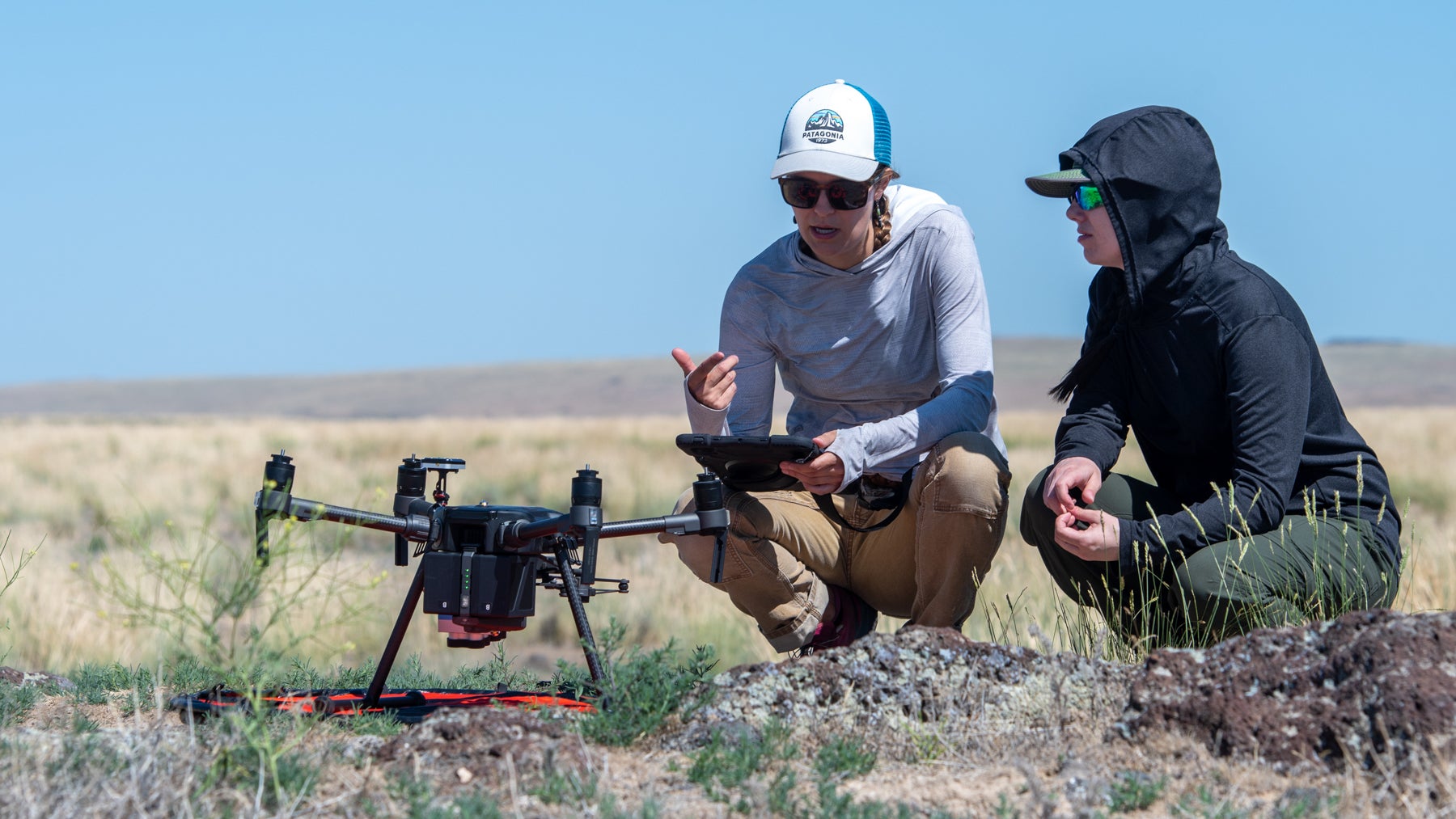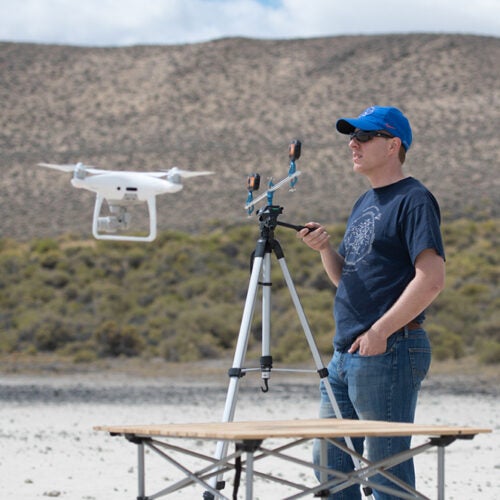
Boise State University is poised to advance the future of unmanned and autonomous systems with a two-year award of $90,000 from the National Science Foundation’s Regional Innovation Engines, or NSF Engines Development Awards. NSF Engines Development Awards aim to help partners collaborate to create economic, societal and technological opportunities for their regions.
Vice President for Research and Economic Development Nancy Glenn will lead Boise State’s involvement in the Northern Front Autonomous Systems Engine in collaboration with regional universities, industry and agencies including: University of North Dakota, Montana State University, South Dakota School of Mines and Technology, the Tribal Nations Research Group and MilTech.
Boise State is well-positioned to lead research, education and service efforts using these technologies. The university offers an undergraduate and graduate certificate in Drone Operations for Visualization, Research, and Resource Management through the College of Innovation and Design, and also uses autonomous systems as a critical data collection tool for numerous research needs. A few examples include natural resource management (such as mapping invasive species, fuel loads, and native species in the sagebrush-steppe), wildlife monitoring, planetary geology and snowpack monitoring. The university also has a close relationship with agency and industry practitioners using robotics, including Pitch Aeronautics, who utilize the technology for monitoring bridges and other infrastructure for safety.
“Building a robotics company is impossible without university, startup and industry collaboration,” said Zach Adams, the CEO and co-founder of Pitch Aeronautics. “Pitch Aeronautics is excited to be a part of the hard technology ecosystem gaining momentum in Idaho.”
Glenn says this usage is just the tip of the iceberg.

“Autonomous systems, including drones, have advanced incredibly over the past several years, and with new AI and sensor technology, the possibilities are limitless. We are excited to work with our partners to develop robust regional economies around autonomous systems,” she said.
With this award, the collaborating universities and industry will catalyze both existing university research, partnerships with industry, and establish economic and workforce opportunities for the inner mountain region. An important component that Glenn is excited by is the opportunity for workforce development of current and future students, including military veteran and other students who may be able to use past flight and tech experience to work with drones, process data and share their expertise with others.
Launched by NSF’s new Directorate for Technology, Innovation and Partnerships and authorized by the “CHIPS and Science Act of 2022,” the NSF Engines program uniquely harnesses the nation’s science and technology research and development enterprise and regional-level resources. NSF Engines aspire to catalyze robust partnerships to positively impact regional economies, accelerate technology development, address societal challenges, advance national competitiveness and create local, high-wage jobs.
Learn more about Boise State’s NSF Engines activity and awards on the university’s news site.